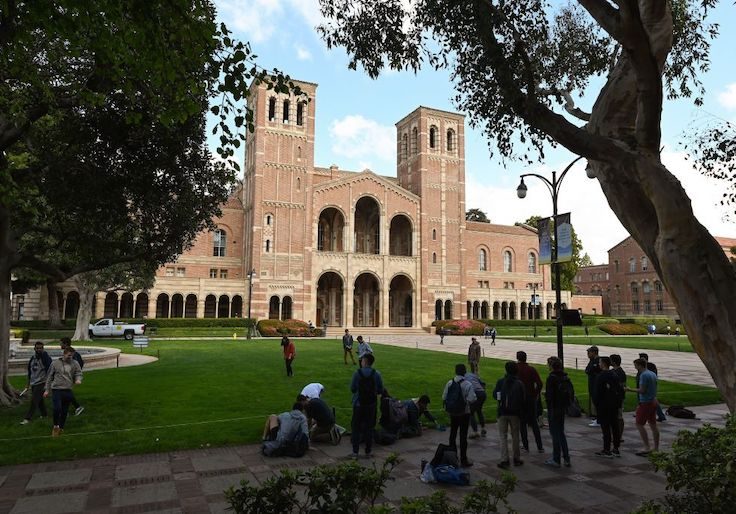Move comes after Harvard Med School dean slammed class and called for investigation

The University of California, Los Angeles medical school is launching a probe of its controversial “health equity” class—and warning whistleblowers they could be punished if any more information leaks about it.
The dean of the medical school, Steven Dubinett, announced Friday that his office had formed a task force to review all first-year courses, including “Structural Racism and Health Equity,” after the Washington Free Beacon published materials from the mandatory class. But the school isn’t happy about having its hand forced.
In an email to students and faculty, Dubinett implied that the leaks were an “attempt to intimidate” the medical school and hinted that future leakers could face discipline—especially if they record lectures.
“Recording class sessions is not permitted without express consent from the instructor and class participants,” Dubinett wrote. That warning appears to be a reference to an earlier incident in which a guest lecturer, Lisa Gray Garcia, led the required course in chants of “Free, Free Palestine” as well as a prayer to “Mamma Earth,” part of which was caught on tape and thrust the course into the national spotlight.
“Doxxing or publishing, posting or identifying private information of faculty, staff, trainees or students in any public forum, including social media, is contrary to UCLA policy and our core values of mutual respect and inclusion,” Dubinett continued. “Guidelines for overseeing invited guest speakers are being developed that will address adherence to our policies.”
The veiled threats come days after the full syllabus for the course went viral online and sparked outrage from prominent doctors—including former Harvard Medical School dean Jeffrey Flier—who said it was filled with unscientific claptrap and called for an investigation. Leaked readings claimed that weight loss is a “hopeless endeavor,” described “anti-capitalist politics” as a tenet of “disability justice,” and advocated for abolishing the police.
The syllabus was designed with input from Shamsher Samra, a professor of emergency medicine who has endorsed “Palestinians’ right to return” and published research on the “health of border abolition.” Though the course initially included an exercise that separated students by race, that lesson was canceled in January after it became the subject of a local civil rights complaint.
Disturbed in part by the incident with Gray-Garcia, some Jewish faculty at the medical school have spoken out against the course, saying it perpetuates an “oppressor vs. oppressed” framework that fuels anti-Semitism. Dubinett alluded to those concerns in his email on Friday, which he said had been sparked by “tensions” over “the conflict in the Middle East.” Like many university administrators since the October 7 attacks, he did not mention Jews specifically and appeared to suggest that anti-Semitism and Islamophobia were equally widespread, condemning them both in the same breath.
“We reiterate our stance against racism, antisemitism, Islamophobia and all forms of discrimination, harassment, intimidation or retaliation,” Dubinett wrote. “We have an unwavering commitment to raise awareness of the persistent structural factors and social drivers that cause disproportionate disease and poor outcomes among marginalized communities.”
UCLA medical school did not respond to a request for comment.
The email, which was also signed by UCLA Health CEO John Mazziotta, said the school would be responding to concerns about anti-Semitism by giving diversity officials more say in the curriculum.
“JEDI teams and vice chairs will provide input for course lecturers and course topics to strengthen medical school course stands,” the email says, referring to the medical school’s office of justice, equity, diversity, and inclusion. That office sponsored a talk this month that glorified self-immolation as a form of “revolutionary suicide” and told psychiatrists to “embed your practice with an anti-colonial lens.”
“Fostering a safe, respectful and professional environment is essential for training our future physicians,” Dubinett wrote. “Our missions in education, research, clinical care and community engagement are our highest priorities.”














